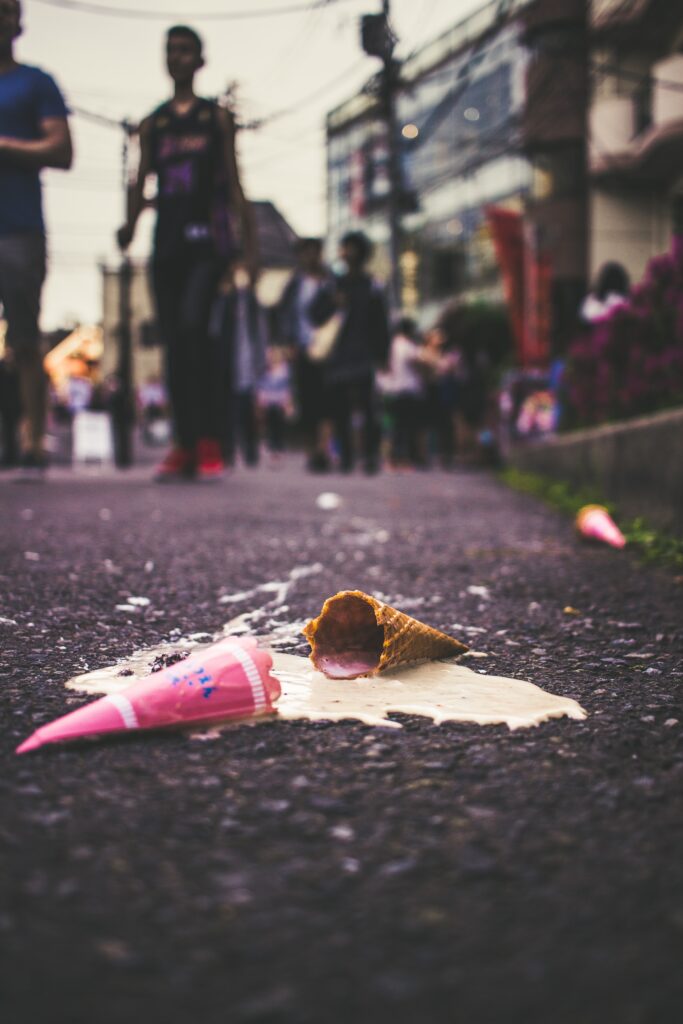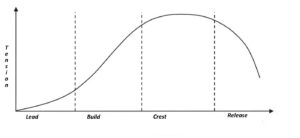Our joy is compromised by many things: natural disasters, loss of a family member or friend, injustice of all kinds. Media seem to thrive on serving up the latest tragedy. We eagerly consume it, no matter if it’s a fictional soap opera or streaming steamy drama. It could be the latest political scandal, or financial markets that swerve wildly. We even take a perverse kind of joy in vilifying the ultra-successful. But we are united by one thing: we all need the best strategy for finding joy after tragedy.
Let’s begin by identifying some popular responses to a tragedy that don’t lead to joy. If you practice any of these, now is the time to stop doing that. Please.
Get over it
Just get over it? Bad idea. Poor advice. Plus, it doesn’t work. When it comes to tragedy, we can’t just wish it or will it away. You can’t drink it away, either. In fact, whether or not our drugs of choice come from a pharmacy, they can’t change the fact that a tragedy happened. Sure, anti-depressants might restore a sense of normalcy, and mind- or mood-altering recreational drugs temporarily hide the tragic incident from consciousness. But drugs can’t do anything to fix the underlying issues behind the tragedy or actually relieve an overwhelming sense of hopelessness. Besides that, many prescription meds come with black box warnings – warnings which some experts now claim actually make the recovery from tragedy worse.
Just get over it? I think not.
Deal with it
Better suggestion. But how? Man up or woman up or trans up? Not a solution. Bravado in the face of tragedy doesn’t help because it’s just insensitive to those who are suffering – including you if it’s your bravado. Keeping that stiff upper lip pointed into the shitstorm only works in the movies, and then usually only for superheroes. If the Titanic is going down, determination to bravely ride it out has exactly zero influence the outcome, in spite of the tragic nobility that screenwriters offer us at such moments.
There’s a place for dealing with tragedy, but not this way. More about that later.
Laugh it off
Are you getting the idea here? Laughing in the face of danger is about as foolhardy as any other impractical response to tragedy can be. The “can do” attitude is admirable, but a response to tragedy based on humor? Don’t misunderestimate this: we do need to laugh, but not while people are at risk or dying, not while things are going you know where in a handbasket, not while Rome burns.
If you must laugh, choose a topic unrelated to the tragedy, and have at it. Humor can strengthen us in useful ways, provided we aren’t laughing at fellow human victims of the tragedy.
A better response
Laughing together, working or praying together, even facing the inevitable together usually show our humanity at its best. There is always a time and place for heroes. But, for the most part, all of us unheroic types are in this together, and we need to remember that. Whether it’s an earthquake, typhoon, hurricane, wildfire, asteroid, or a super volcano, the ultimate outcome may be impossible to change, but the way we approach makes all the difference. While it’s nice to think that we can rely on someone else to do the dirty work, it’s also less than responsible to armchair quarterback a response to tragedy just because it didn’t happen in our neighborhood.
How easily we forget that the men and women who respond to or are caught up in a tragedy are someone’s sons, daughters, parents, or siblings! They may not be from our family, but they are still as human as the rest of us, and it’s heartless to ignore that fact. Isn’t it better to take time to remember that unwilling victims of tragedy share the common human bond with everyone on earth?
Instead of marginalizing victims – and we use plenty of poor-excuse-isms for doing so! – let us use our shared humanity to meet tragedy properly and with compassion.
What we share in tragedy
At some level, we can all recognize suffering. Tragedy is very good at illustrating suffering in ways that the media loves to exploit. What we choose to do about tragedy is often worse than the event itself! Sure: we send humanitarian aid and protection, volunteer help, or contribute treasure. Sadly, none of these actions seem to make news that sells advertising.
Unfortunately, tragedy is often compounded by our collective addition to bad news. Instead of sharing the common bond of humanitarian kindness toward victims of a tragedy, why is it that we revel in disasters, both real and imagined?
Instead, we could share a powerful connectivity in response to some impossibly tragic event. We could be grieving together and using that grief to power an inspired response that changes lives for good. Sadly this kind of response is both rare and under-reported, even though it’s out there. For examples check into this story in Forbes.com about how to use social media in response to tragedy or this website that offers tools to build sustainable, durable communities.
The best strategy
By now, you’ve probably already decided that the best strategy for finding joy after a tragedy is connection. Connection to others, even those you have never met, offers a collective kind of strength that contains shared reassurance, companionship, and support.
Chess grandmaster Bobby Fisher’s last words were: “Nothing is as healing as the human touch,” and in times of tragedy great or small, this is especially true. It may take courage to show up, but bravely being present in a community, whether in the stillness of grief or the action of a life-saving response, is the best way to meet tragedy.
Two unexpected gifts
Offering your presence after a tragedy, whether one to one or in a larger community, brings you two unexpected gifts. The first gift is completion.
That is, beyond a mutual recognition and acceptance of what cannot be changed, coming together in response to a tragic event allows the full expression and experience of our emotional response to the event. Instead of isolating ourselves after a tragedy, mutual connection helps us safely and fully feel the emotions that arise in us. It is good to do this, rather than keeping those feelings trapped inside.
The second gift comes when we have fully allowed our response to the tragic event, and the more complete our emotional cleanse, the more profound the second gift can be. When the way is clear, the second gift we are given is joy.
Not the kind of joy that insensitively declares “I’m happy that didn’t happen to me!” or even “I’m so happy that’s over!” The kind of joy that replaces full expression of the emotions we feel in response to tragedy is subtler, more profound, more long-lasting, and much more nourishing. Far from ecstasy, this kind of joy is durable, long-lasting, enlivening. It’s a more permanent sense, a useful kind of emotional tool we can lean on. Who doesn’t want that kind of joy?
The best strategy for finding joy after tragedy
After a tragedy, let yourself join with community in support of the emotional cleansing that needs to happen. Whether it takes moments, days, or years, allow the feelings triggered by the tragic event to completely wash through you until they are spent. It’s fine if this takes time; we often hold on to so much that needn’t weigh us down, and tragedy is a good time to let it all go.
Then, allow the joy. You can rely on your own physiology much more than you might think, and it will deliver the emotion you most need. Clearing all the other non-joyous feelings makes way for joy. It’s right there, ready to welcome you. Are you ready?
No need to walk alone
Would you like someone to walk beside you during this process? We can help. Reach out to us here.
Ready for a deeper dive? The Musimorphic Quest, a fully-mentored online active-learning experience will immerse you in practical ways to meet life’s challenges with skills you may not realize you already have. It’s not for everybody, but you are that unique individual who really resonates with with the power of music and wants to learn to wield it with skill, give it a try. The landing page is here.
The Best Strategy For Finding Joy After Tragedy Strikes



